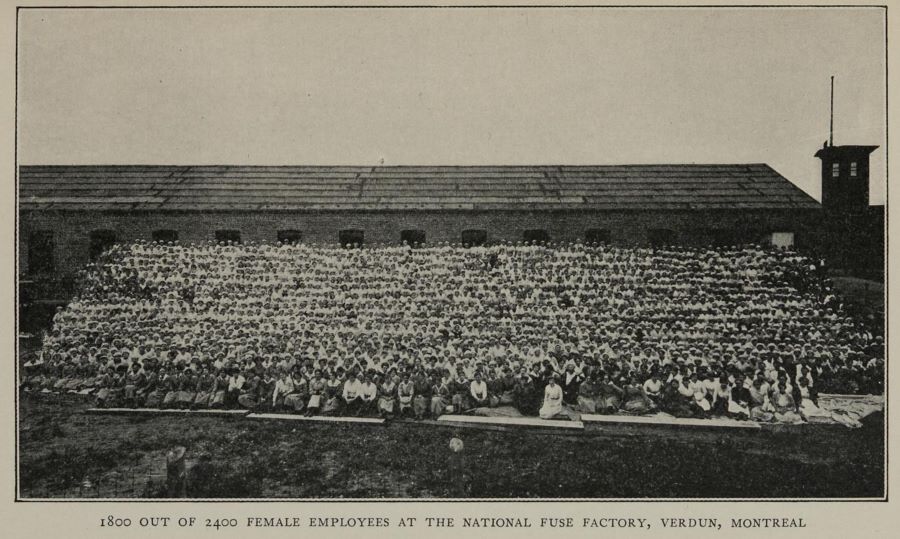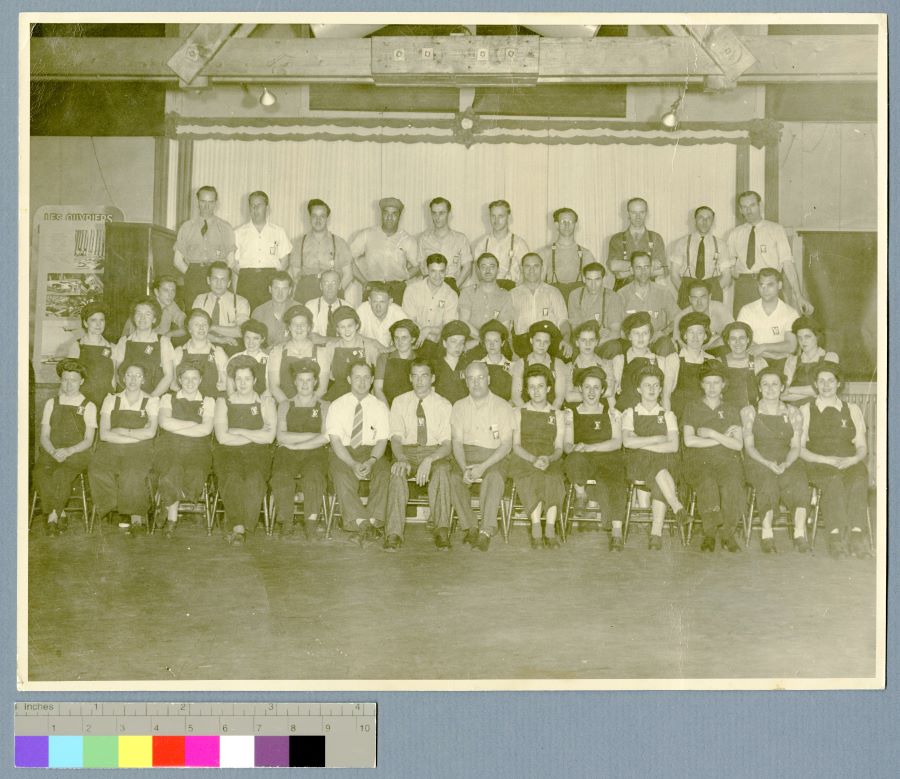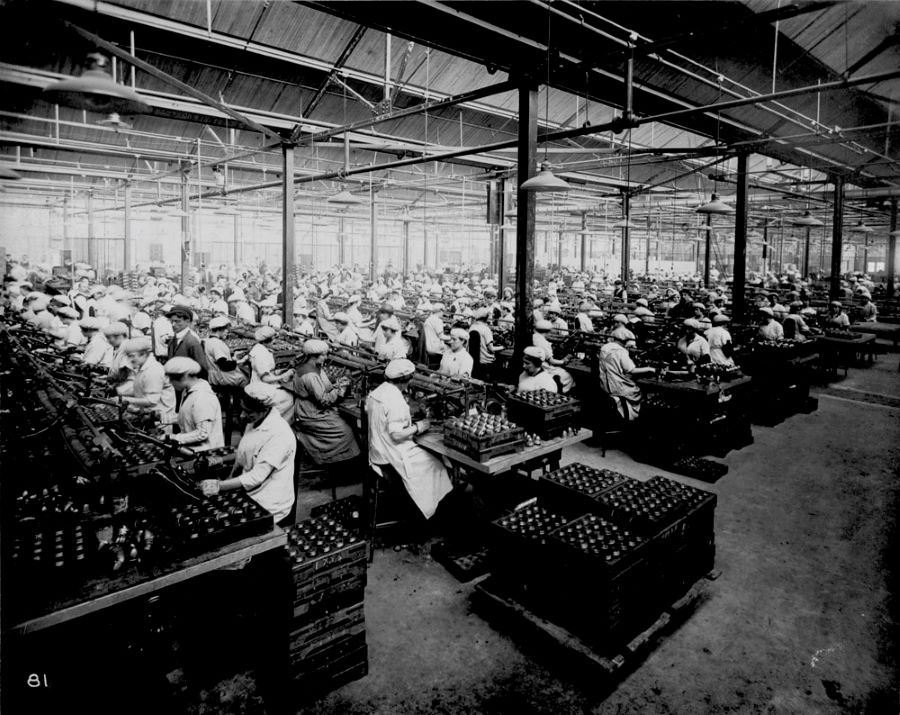Women in the Factories
In times of war, women often take on jobs traditionally held by men. This was definitely the case in Verdun. Many women went to work in munitions factories. During the First World War, some 4000 people, mostly women, worked at the British Munitions Supply Company in Verdun.
During the Second World War, an effective recruitment campaign was launched to attract women to factory work. In June 1941, women represented 34% of workers at the Verdun factory and 51% in July 1943. Some women managed to secure skilled jobs and managerial positions. This was the case for Lois Campbell, who was put in charge of munitions quality inspection at the Verdun factory in 1941.
The working conditions for these women were very demanding, and often dangerous. They were exposed to the hazards of factory work (poor ventilation, chemical products, machinery, heavy loads, sitting or standing for long periods, etc.), noise and the risk of explosions.
Many employers set up safety and production committees in an effort to improve the women’s working conditions. Wartime industries were required to be well lit and clean. Consequently, they generally offered better working conditions than most textile factories.
Despite their heavy workload, women forged friendships with one another. Mildred Allen, an assembly line inspector in the quality control department at Defence Industries Limited (DIL) in Verdun, described her daily routine at the factory:
We would usually eat our meals in the DIL cafeteria. It was convenient, gave us a chance to get the latest news and even more, the food was great. We always seemed to have a good time, joking and laughing, and even though the work was hard and the days long, nobody complained.
«The Original “Bomb Girl”: Hudson’s Mildred Allen»
by Bill Young and Ralph Simpson,
Quebec Heritage News, Vol. 8, No. 4, Fall 2014, pp.28-30.




